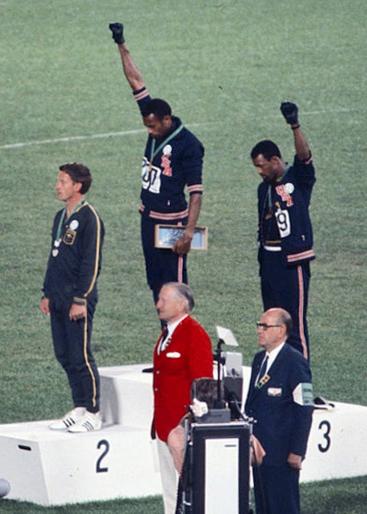The sporting world is taking a hard look at one of its most impactful phenomenons since the desegregation of professional sports.
As sports media and coverage becomes more intrusive into the personal lives of athletes, the space between a person being an athlete and social justice advocate has blurred. More and more people are calling on athletes to act as speakers for the communities that they belong to or believe in. There are many schools of thought regarding an athlete’s place in social advocacy, but many of those roads lead to San Francisco where, in 2015, Colin Kaepernick protested during the national anthem in an attempt to spark conversation regarding the treatment and abuse of the black community by police forces on a nationwide scale. His act, and the media field day that ensued gave birth to today’s conversation of an athlete’s place in our society.
The argument is split, for the most part, into two camps.
One thought is that athletes have an inherent obligation to use the platforms given to them by their status as athletes to speak out about social issues and other events affecting our country on a national scale. For reference, this camp is the one that you’d be in if you believed that there was nothing wrong with Kaepernick’s protesting.
The other side of this coin is the idea that athletes are just athletes. This camp believes in the idea that athletes are simply entertainers and that their only obligation is to perform and do their jobs. If your first thought at Kaepernick’s protests was something along the lines of “why isn’t he just playing quarterback?” or “he’s disrespecting the anthem,” then this is the camp for you.
Don’t get me wrong, there is most definitely a gray area between the polar ends of the argument. These two viewpoints are more similar to one another than one might think. For instance, there’s a schism amongst military veterans regarding the protests, where some hate Kaepernick for protesting the flag that they fought for while others kneel with him to show solidarity in his movement.
Our lives dictate the scope with which we look at philosophical questions about the roles that we play in the world we live in. Whether or not someone believes that athletes are just muscular sacks with great catching abilities or that they’re human beings with thoughts, feelings and opinions, is entirely relative to the person who’s holding the opinion. As recent history has told, many athletes are sticking with the idea that they have a right and duty to involve themselves in social and political issues. In professional sports, athletes of all walks of life are beginning to share their thoughts on the problems affecting the globe.
Since Kaepernick’s protest, several players from the NFL, NBA, WNBA, MLB and NHL have used media interviews during post-game press conferences to spread messages about various social justice issues in the United States. Eagles’ safety Malcolm Jenkins held up signs in front of the cameras to make a point about the lack of change since Kaepernick’s kneel, while Baltimore Orioles’ Catcher Adam Jones spoke up about the lack of movement by the MLB in regards to talking about issues regarding social justice.
Examples are everywhere, but the meaning is blunt. Professional athletes are taking the microphone. The question of validity, qualification and perspective is what will dictate the longevity of the argument of whether they should. The future is unknowable, but one thing is clear: an athlete’s voice, and their right to use it, will define sports for years to come.


